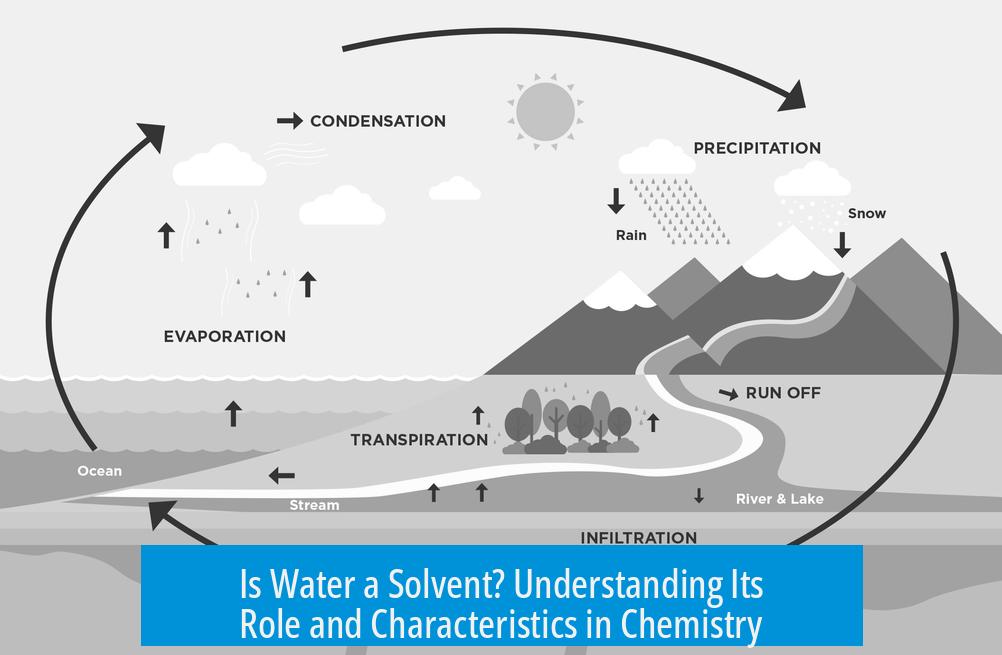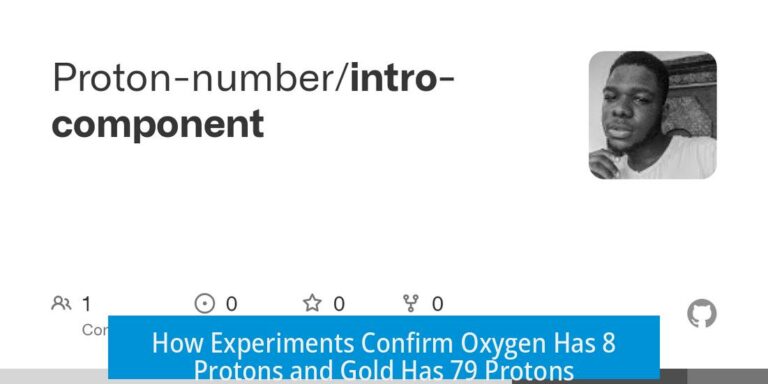Is Water Considered a Solvent?
Yes, water is considered a solvent. It is the most common solvent on Earth and often referred to as the “universal solvent” because of its remarkable ability to dissolve a wide range of substances. This status stems from its unique chemical properties, primarily its polarity. Water’s solvent role is fundamental in chemistry, biology, and environmental sciences.
Understanding Water as a Solvent
Definition of a Solvent
A solvent is a substance that dissolves a solute, forming a solution. The term “solvent” is relative and depends on the presence of a solute; a substance only functions as a solvent when it dissolves another material. Therefore, water becomes a solvent when a solute dissolves in it.
Water’s Status as the Universal Solvent
Water’s reputation as the universal solvent arises from its ability to dissolve more substances than any other liquid. This property is crucial for sustaining life on Earth, as biological processes depend on reactions in aqueous solutions. Water dissolves salts, sugars, acids, bases, gases, and many organic and inorganic compounds.
- Water dissolves ionic compounds like sodium chloride (table salt), enabling their ions to separate.
- It dissolves polar molecules like sugars through hydrogen bonding.
- Water participates in biochemical processes, dissolving essential nutrients and gases, such as oxygen and carbon dioxide.
Polarity of Water
Water is a polar molecule, meaning it has a partial positive charge on the hydrogen atoms and a partial negative charge on the oxygen atom. This polarity allows water to interact strongly with other polar or charged molecules.
| Feature | Effect on Solvent Ability |
|---|---|
| Polarity | Enables water to dissolve ionic and polar substances effectively. |
| Hydrogen Bonding | Facilitates strong interactions with solutes, promoting dissolution. |
| High Dielectric Constant | Reduces electrostatic forces between ions, aiding solubility. |
Examples Demonstrating Water as a Solvent
Real-world examples highlight water’s role as a solvent:
- Seawater: Salt is dissolved in vast amounts in oceans, with water acting as the solvent.
- Biological Fluids: Blood plasma consists mostly of water dissolving ions, proteins, and other molecules.
- Natural Processes: Water gradually dissolves minerals in rocks, shaping Earth’s landscape over time.
- Aqueous Solutions: Many laboratory reactions occur in water because it dissolves reagents effectively.
Biological and Chemical Significance
Water’s solvent properties are vital in biology. Cells depend on aqueous environments to transport nutrients and waste. The ability of water to dissolve a vast array of substances supports complex biochemical pathways. Its role as a solvent directly affects physiological processes such as respiration and digestion.
- Water facilitates enzyme activity by dissolving substrates and products.
- It supports ionic balance and electrical conductivity in cells.
- Water’s amphoteric nature (can act as acid or base) influences acid-base equilibria in biological systems.
Conceptual Insights: Solvent is a Relative Term
The solvent identity depends on context. The substance present in the greatest amount typically serves as the solvent. For example, in a solution of salt dissolved in water, water is the solvent. However, in a mixture with less than 50% water, water could act as a solute instead.
“The solute-solvent relationship is codependent. Nothing just ‘is’ a solvent. A substance behaves as a solvent if you dissolve a solute in it.”
Limitations and Nuanced Perspectives
Not Truly Universal for All Substances
Despite the nickname “universal solvent,” water does not dissolve every chemical. Nonpolar substances like oils and some organic materials have low solubility in water because they cannot form favorable interactions with water molecules.
- Water is a poor solvent for hydrophobic compounds such as fats and oils.
- Some substances, like red phosphorus, are largely insoluble in water.
Other Solvent Characteristics
Water’s high surface tension and boiling point can limit its solvent performance in certain scenarios. It is a polar protic solvent and not suitable for dissolving many nonpolar organic substances that require organic solvents like hexane or benzene.
Caution with the Universal Solvent Label
Scientists sometimes caution against the absolute use of “universal solvent.” The term is popular in teaching and general science but can oversimplify the complexity of solvent behaviors.
“It is called the universal solvent which is technically an exaggeration because there are many substances that water cannot dissolve.”
Summary of Key Points
- Water is the most common solvent on Earth, often called the universal solvent.
- Water’s polarity and hydrogen-bonding capability allow it to dissolve many ionic and polar substances.
- Water is not inherently a solvent; it functions as one when a solute is dissolved in it.
- Water’s solvent properties underpin critical biological and chemical processes.
- The universal solvent label is an approximation; water does not dissolve all materials equally.
- Solvent and solute roles depend on their relative amounts and solution context.
Is water always a solvent or does it depend on the situation?
Water acts as a solvent only when it dissolves a substance. If nothing is dissolved, it isn’t technically a solvent. The role of solvent depends on the mixture’s composition.
Why is water called the universal solvent?
Water can dissolve more compounds than any other liquid on Earth. This ability to dissolve many substances earns it the name “universal solvent.”
Is water effective at dissolving all substances?
No. Water is a strong solvent for ionic and many polar compounds but weak for some nonpolar and organic substances. Its solvent ability has limits.
How does water’s polarity affect its role as a solvent?
Water’s polar nature allows it to attract and break apart ionic and polar molecules. This makes it effective for dissolving salts and many biological molecules.
Is the label “universal solvent” scientifically accurate?
While common, the term can be misleading. Some substances, like red phosphorus, don’t dissolve in water. Scientists often caution using “universal solvent” as a strict definition.





Leave a Comment